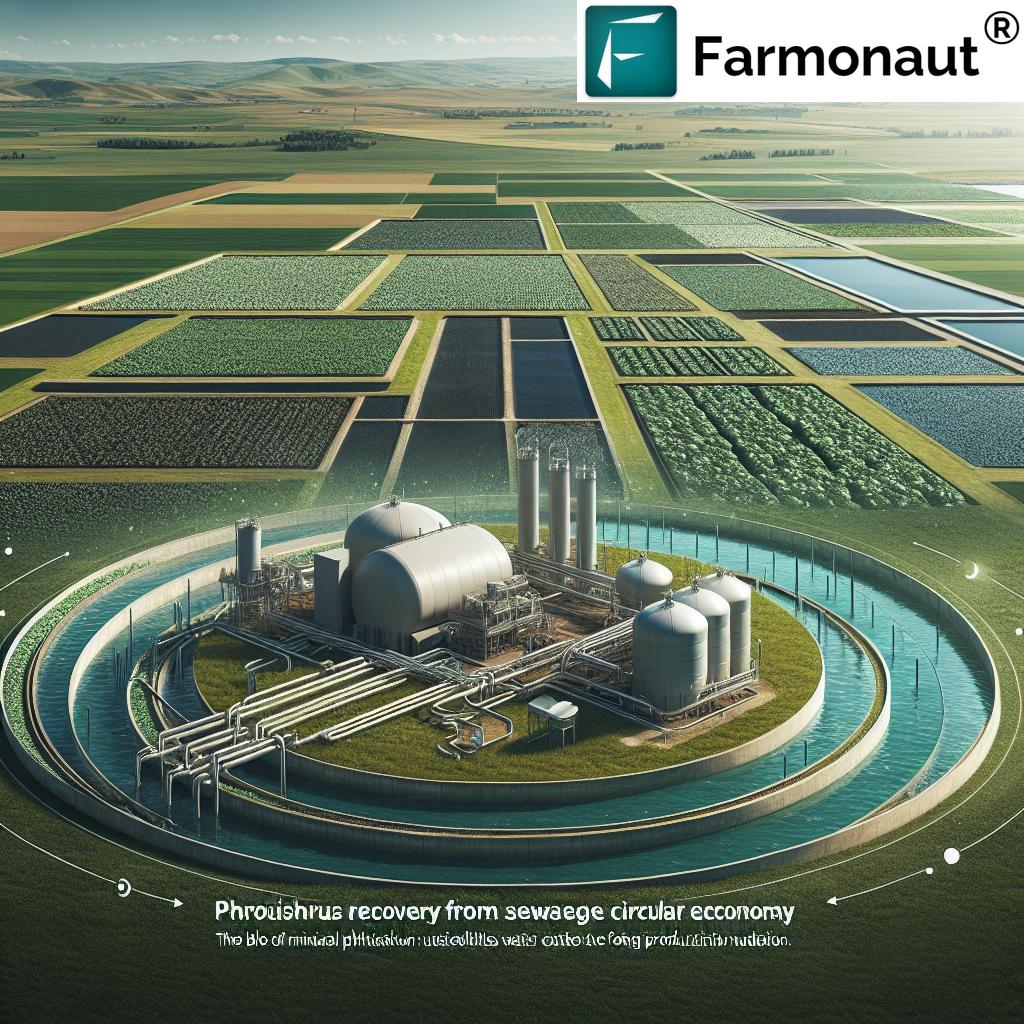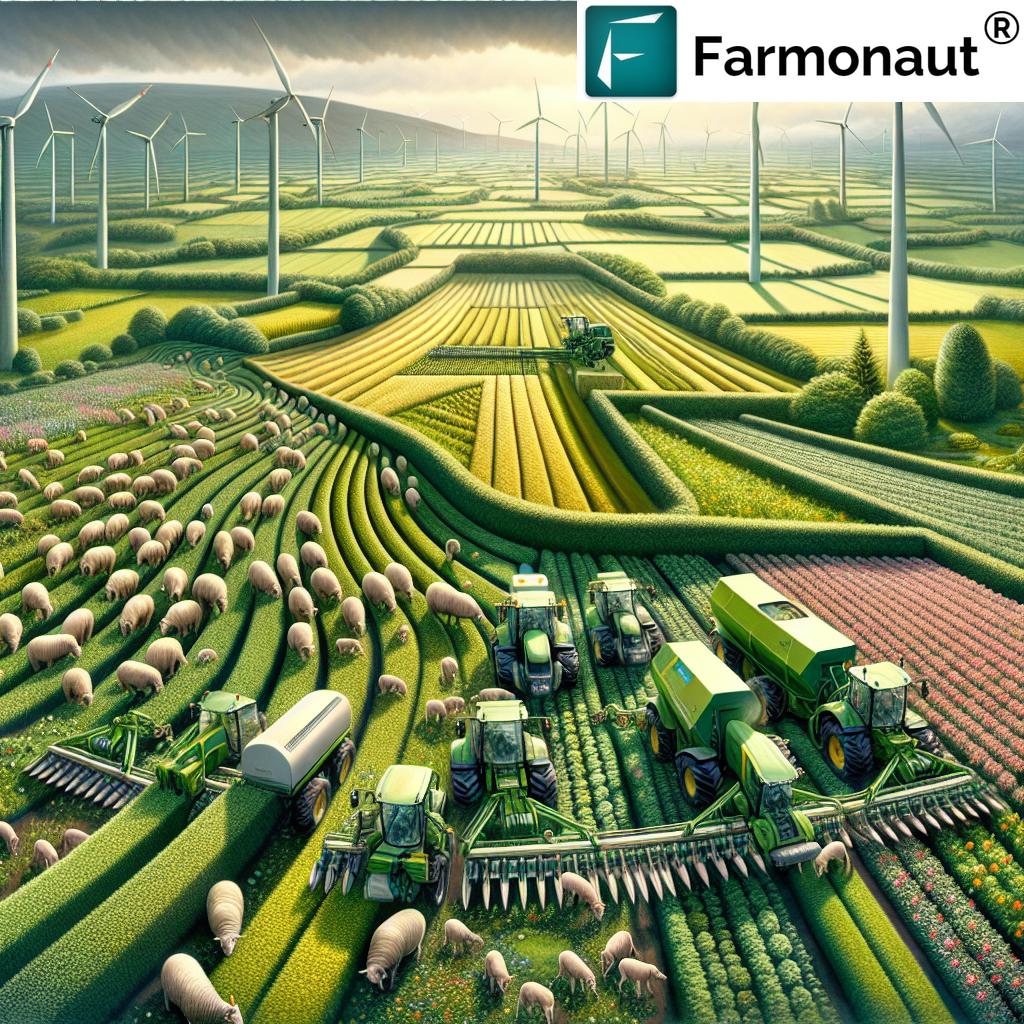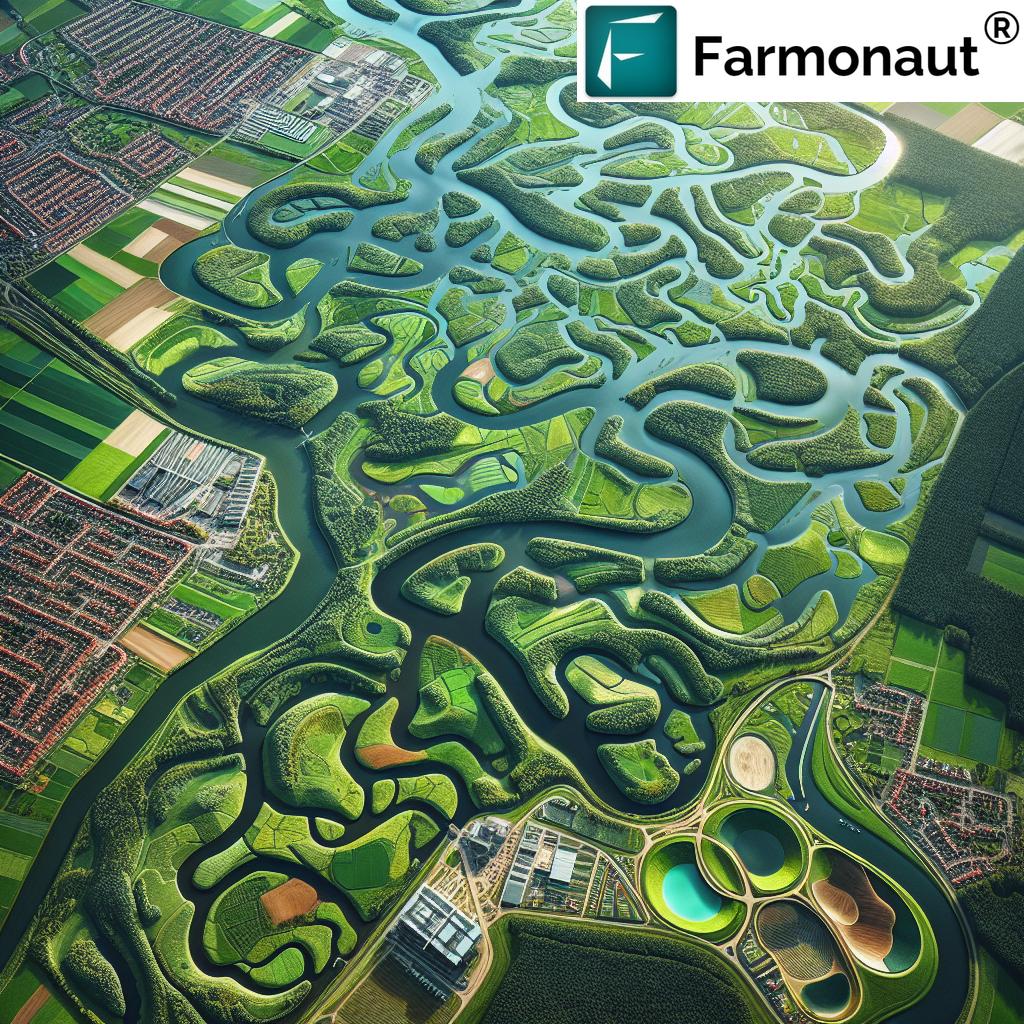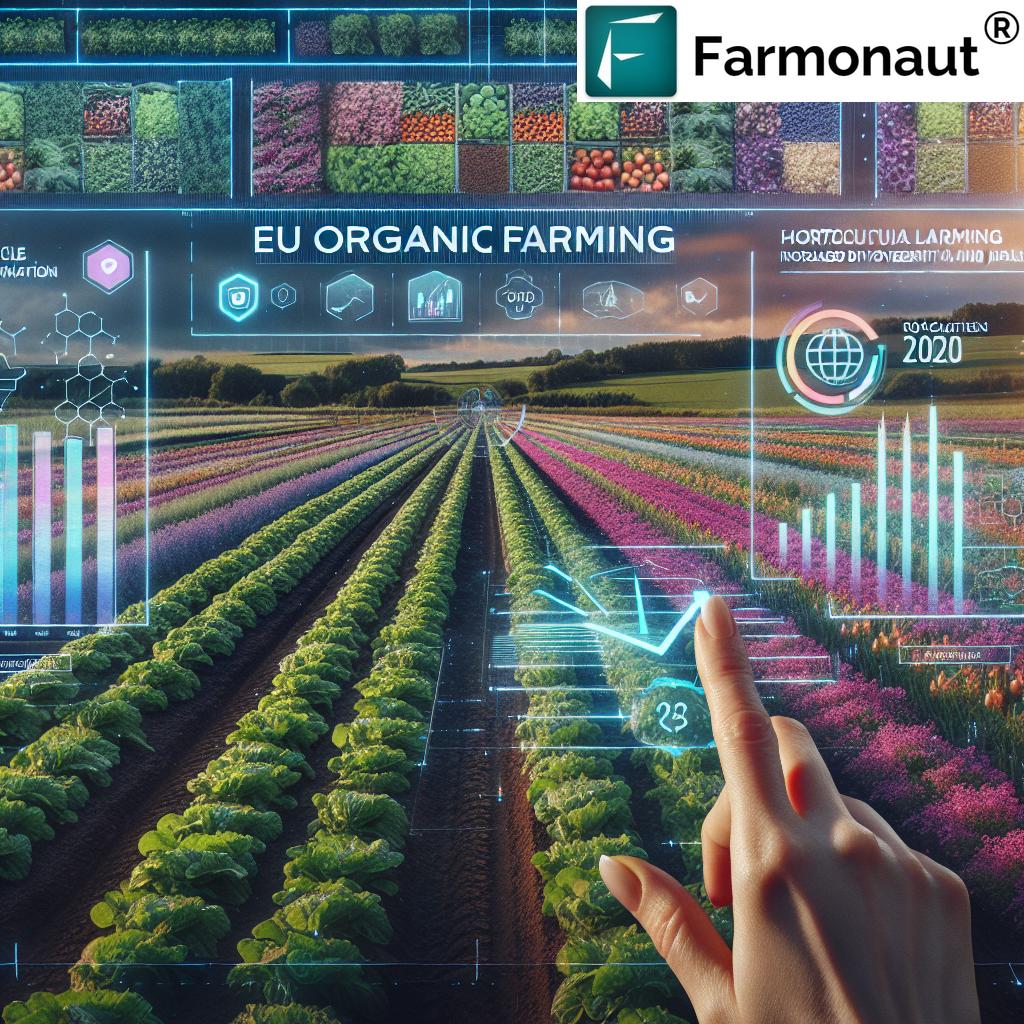France Shifts Stance on Gene-Edited Crops: Implications for EU Agricultural Policy and Innovation
“France, as the EU’s largest agricultural producer, accounts for about 18% of the EU’s total agricultural output.”
In the ever-evolving landscape of European agriculture, a significant shift is taking place that could reshape the future of crop production across the continent. France, the powerhouse of European agriculture, has recently made waves by reconsidering its stance on gene-edited crops, challenging the existing regulatory framework and potentially paving the way for a new era of agricultural innovation. This development has far-reaching implications for EU agricultural policy, farmers, global markets, and the future of food production.
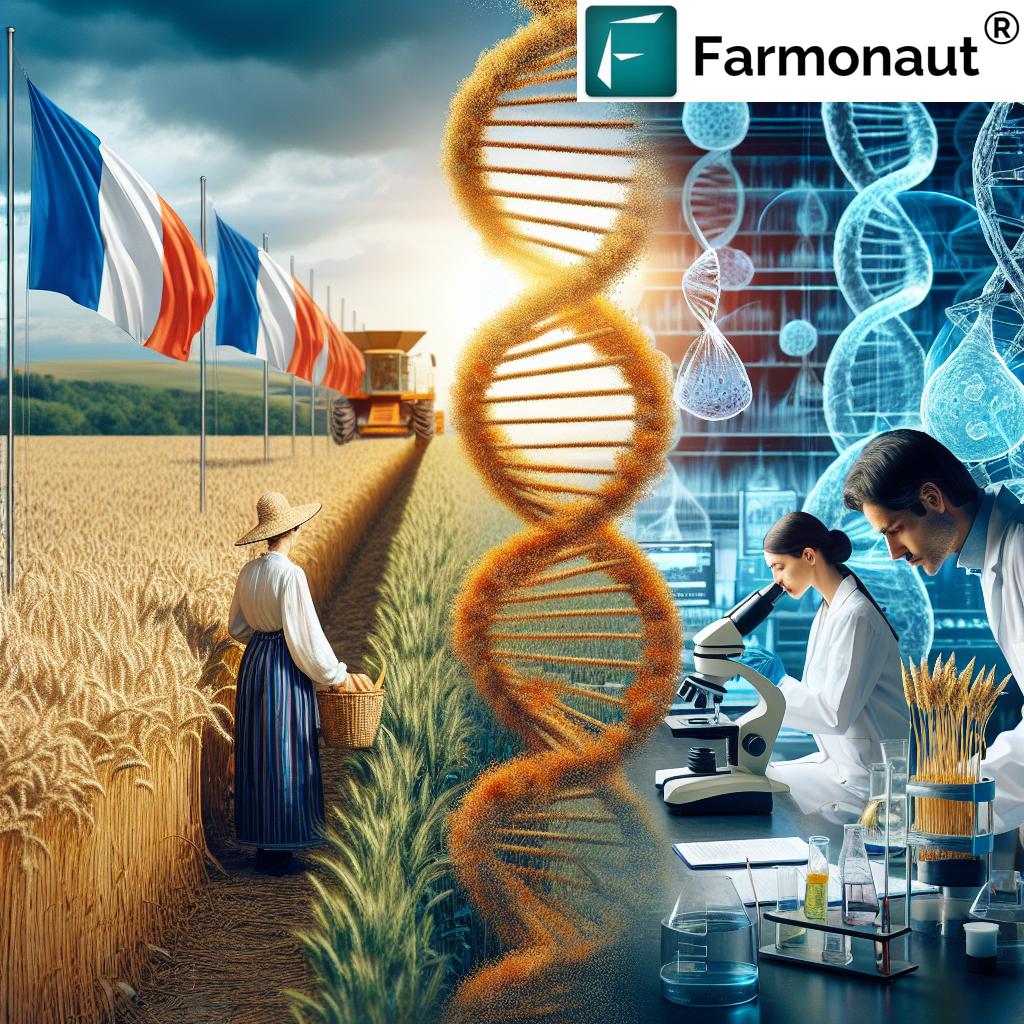
As we delve into this complex topic, it’s crucial to understand the context and the potential ramifications of France’s changing perspective. The intersection of policy, science, and agriculture in the EU is at a critical juncture, and the decisions made in the coming months and years could significantly influence the trajectory of crop cultivation and agricultural techniques across Europe and beyond.
Understanding Gene Editing in Agriculture
Before we explore France’s shifting stance, let’s establish a clear understanding of gene editing in agriculture and its distinction from traditional genetically modified organisms (GMOs).
- Gene editing in agriculture refers to a set of precise techniques used to make specific changes to an organism’s DNA. These methods allow scientists to add, remove, or alter genetic material at particular locations in the genome.
- New Breeding Techniques (NBTs) encompass a range of modern biotechnological approaches, including gene editing, that offer more precise and efficient ways to improve crop traits.
- Traditional GMOs, on the other hand, often involve introducing foreign DNA from unrelated species into an organism.
The key difference lies in the precision and nature of the genetic modifications. Gene editing techniques like CRISPR-Cas9 can make targeted changes within a species’ genome, often mimicking changes that could occur naturally or through conventional breeding, but much more quickly and precisely.
The European Regulatory Landscape
The current European regulatory framework for gene-edited crops stems from a landmark decision by the European Court of Justice in 2018. This ruling classified organisms developed through mutagenesis and other NBTs under the same strict GMO regulations that have been in place since 2001.
“The 2018 European Court of Justice ruling on gene editing affected over 500 plant breeding companies across the EU.”
This decision had significant implications:
- It subjected gene-edited crops to extensive safety assessments and approval processes.
- It required labeling of products derived from these techniques as GMOs.
- It effectively limited the use of these innovative breeding techniques in European agriculture.
The ruling was met with mixed reactions. While some environmental groups celebrated it as a victory for precaution and transparency, many scientists and agricultural experts expressed concern that it would hinder innovation and put European farmers at a competitive disadvantage globally.
France’s Changing Perspective
France, as the largest agricultural producer in the EU, has traditionally been cautious about GMOs and new biotechnologies in agriculture. However, recent developments indicate a significant shift in the country’s stance:
- The French government has begun advocating for a more nuanced regulatory approach to gene-edited crops.
- There’s growing recognition that not all gene-edited organisms pose the same risks as traditional GMOs.
- French policymakers are calling for a distinction between gene-edited organisms that could have been produced through conventional breeding methods and those that contain foreign DNA.
This change in perspective is driven by several factors:
- Scientific Advancements: Improved understanding of gene editing techniques and their precision.
- Economic Considerations: Concerns about falling behind in agricultural innovation and competitiveness.
- Environmental Challenges: The need for crops that can withstand climate change and reduce environmental impact.
- Food Security: The potential for gene-edited crops to enhance yields and nutritional value.
Implications for EU Agricultural Policy
France’s shift in stance has the potential to significantly influence EU agricultural policy. As a leading voice in European agriculture, France’s position carries considerable weight. The implications of this shift could include:
- A potential review and revision of the EU’s regulatory framework for NBTs.
- Increased investment in research and development of gene-edited crops within the EU.
- A possible realignment of European agriculture with global trends in biotechnology.
- Enhanced competitiveness for European farmers in global markets.
However, any changes to EU policy will require careful negotiation and consensus-building among member states, some of which may still have reservations about gene editing in agriculture.
The Debate: Environmental Concerns vs. Agricultural Innovation
At the heart of this issue lies a complex debate between environmental protection and agricultural innovation. Proponents of gene editing argue that these techniques can:
- Develop crops more resistant to pests and diseases, reducing the need for chemical pesticides.
- Create plants that use water and nutrients more efficiently, contributing to sustainable farming practices.
- Enhance nutritional content in foods, addressing global health challenges.
- Improve crop yields to meet growing global food demand.
On the other hand, environmental groups and some consumers express concerns about:
- Potential unforeseen environmental impacts of gene-edited organisms.
- The need for long-term studies on the safety of these techniques.
- The risk of reduced biodiversity if gene-edited crops become dominant.
- The ethical implications of manipulating genetic material.
Balancing these concerns with the potential benefits of gene editing in agriculture remains a significant challenge for policymakers.
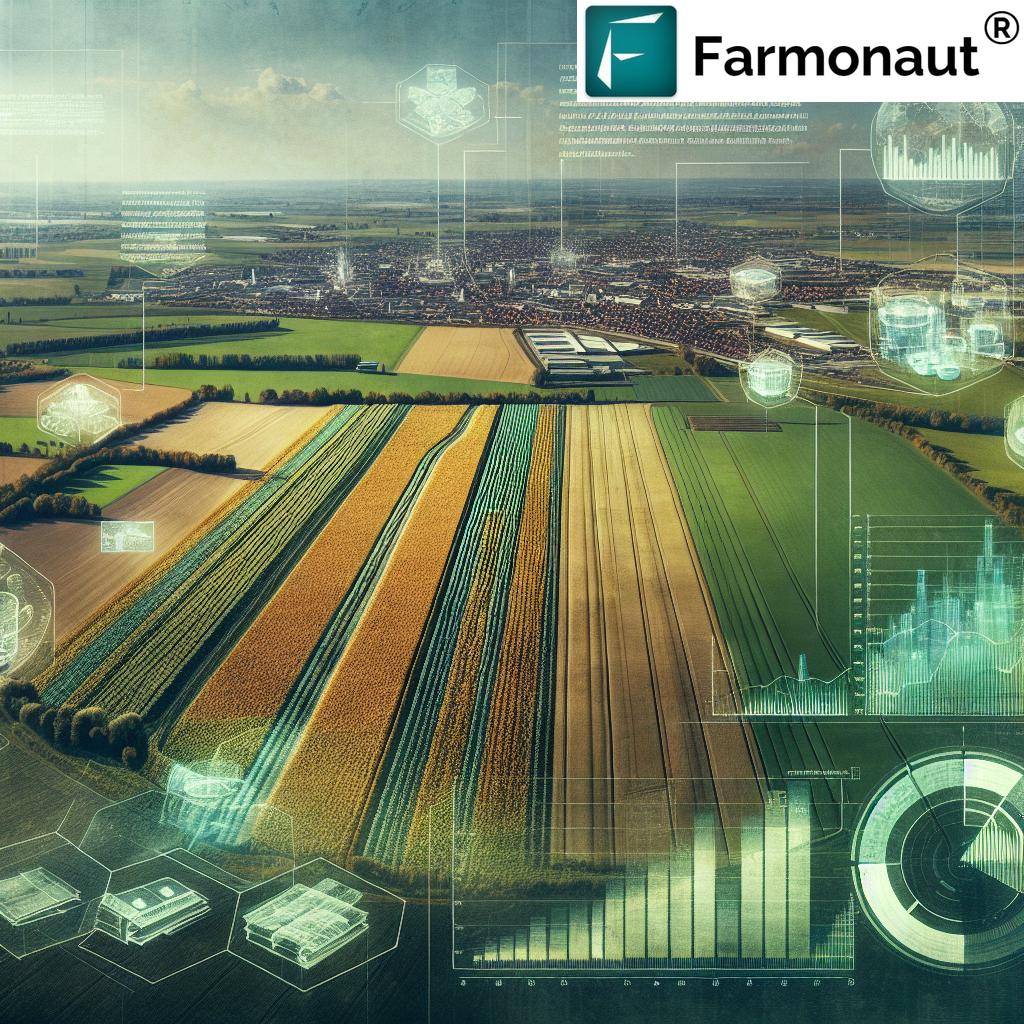
Impact on European Farmers and Global Markets
The potential shift in EU policy on gene-edited crops could have profound implications for European farmers and global agricultural markets:
- Competitiveness: Access to gene-editing technologies could help European farmers compete more effectively in global markets.
- Crop Diversity: Gene editing could enable the development of crops tailored to specific regional conditions across Europe.
- Sustainability: Improved crop varieties could contribute to more sustainable farming practices, aligning with EU environmental goals.
- Market Dynamics: Changes in EU regulations could affect trade relationships and market access for agricultural products globally.
For individual farmers, the adoption of gene-edited crops could mean:
- Potential for higher yields and more stable production.
- Reduced input costs for pesticides and fertilizers.
- New opportunities for specialized, high-value crops.
- The need for education and training on new agricultural technologies.
The Role of Agricultural Technology in the Gene Editing Era
As the agricultural landscape evolves with the potential adoption of gene-edited crops, the role of agricultural technology becomes increasingly crucial. Innovative solutions like those offered by Farmonaut can play a significant role in maximizing the benefits of these new crop varieties while ensuring sustainable and efficient farming practices.
Farmonaut’s satellite-based crop health monitoring and AI-driven advisory systems can provide valuable insights for farmers working with gene-edited crops. By offering real-time data on crop health, soil moisture, and other critical metrics, Farmonaut enables farmers to make informed decisions about irrigation, fertilizer usage, and pest management. This level of precision is particularly valuable when working with advanced crop varieties that may have specific management requirements.
To learn more about how Farmonaut’s technology can support modern agricultural practices, visit their web application or explore their mobile apps:
Research and Innovation in European Agriculture
The potential shift in policy regarding gene-edited crops could have a significant impact on agricultural research and innovation in Europe:
- Increased Funding: A more permissive regulatory environment could lead to increased public and private investment in agricultural biotechnology research.
- Collaboration Opportunities: European researchers may have more opportunities to collaborate with international counterparts on gene editing projects.
- Talent Retention: A more innovation-friendly environment could help retain top scientific talent within the EU.
- Diversification of Research: Beyond crop improvements, research could expand into areas like livestock breeding and biofuel production using gene editing techniques.
For those interested in leveraging satellite and weather data for agricultural research, Farmonaut offers an API that provides access to valuable agricultural data. Researchers and developers can find more information in the API Developer Docs.
Comparison of Gene-Editing Techniques in Agriculture
| Technique | Classification | Current EU Status | Proposed French Approach | Agricultural Applications | Estimated Adoption Rate (%) | Key Benefits | Main Concerns |
|---|---|---|---|---|---|---|---|
| CRISPR-Cas9 | NBT | Regulated as GMO | Potential exemption | Drought resistance, yield improvement | 5-10 | Precision, efficiency | Off-target effects |
| TALENs | NBT | Regulated as GMO | Under review | Disease resistance, nutritional enhancement | 2-5 | Specificity, flexibility | Complexity, cost |
| Zinc Finger Nucleases | NBT | Regulated as GMO | Under review | Pest resistance, crop quality | 1-3 | Versatility | Design challenges |
| Oligonucleotide-Directed Mutagenesis | NBT | Regulated as GMO | Potential exemption | Herbicide tolerance, flavor enhancement | 0-2 | Minimal genomic changes | Limited applications |
Global Context and International Competitiveness
France’s shifting stance on gene-edited crops must be considered within the broader global context. Many countries, including the United States, Canada, and several South American nations, have already adopted more permissive regulatory approaches to gene editing in agriculture. This global landscape creates several considerations for the EU:
- International Trade: Differing regulations on gene-edited crops could create new trade barriers or opportunities.
- Global Food Security: Gene editing has the potential to address global challenges like climate change adaptation and food security.
- Scientific Leadership: The EU’s position on gene editing could affect its standing in global biotechnology research.
- Regulatory Harmonization: There may be pressure to align EU regulations more closely with international standards to facilitate trade and research collaboration.
For European farmers and agribusinesses, the global context underscores the importance of staying informed about international developments in agricultural biotechnology. Tools like Farmonaut’s satellite-based monitoring can help farmers adapt to changing global markets by providing data-driven insights for crop management and decision-making.
Consumer Perception and Public Engagement
A critical aspect of any potential policy change regarding gene-edited crops is public perception and consumer acceptance. The EU has traditionally had a cautious approach to GMOs, partly driven by public concerns. As France and potentially other EU countries reconsider their stance on gene editing, public engagement will be crucial:
- Education and Awareness: There’s a need for clear, science-based communication about gene editing techniques and their differences from traditional GMOs.
- Transparency: Ensuring transparency in the development and regulation of gene-edited crops will be essential for building public trust.
- Labeling and Consumer Choice: Discussions around how gene-edited products should be labeled, if at all, will be an important part of the policy debate.
- Ethical Considerations: Addressing ethical concerns about gene editing in agriculture will be necessary to gain broader public acceptance.
For farmers and agricultural businesses, understanding and addressing consumer perceptions will be crucial. Farmonaut’s blockchain-based traceability solutions can play a role in providing transparency and building consumer trust in agricultural supply chains, regardless of the crop varieties used.
Environmental Implications and Sustainability
The potential adoption of gene-edited crops in the EU raises important questions about environmental impact and sustainability:
- Biodiversity: There are concerns about the potential impact of gene-edited crops on biodiversity, which need to be carefully studied and addressed.
- Pesticide Use: Gene-edited crops resistant to pests could reduce the need for chemical pesticides, potentially benefiting the environment.
- Climate Resilience: Crops developed to withstand extreme weather conditions could play a role in adapting agriculture to climate change.
- Resource Efficiency: Improved varieties could lead to more efficient use of water and nutrients, contributing to sustainable farming practices.
Monitoring the environmental impact of agricultural practices, including those involving gene-edited crops, will be crucial. Farmonaut’s satellite-based monitoring services can provide valuable data for assessing land use changes, crop health, and overall environmental impact over time.
The Road Ahead: Policy Challenges and Opportunities
As France leads the way in reconsidering the EU’s approach to gene-edited crops, several policy challenges and opportunities lie ahead:
- Regulatory Framework: Developing a nuanced regulatory framework that distinguishes between different types of genetic modifications while ensuring safety and transparency.
- Harmonization: Balancing the desire for a unified EU approach with the diverse perspectives of member states.
- Research Support: Establishing funding mechanisms and guidelines for responsible research into gene editing in agriculture.
- International Cooperation: Engaging in global dialogues on the regulation and trade of gene-edited agricultural products.
- Monitoring and Assessment: Implementing robust systems for monitoring the long-term impacts of gene-edited crops on health, environment, and agriculture.
The path forward will require careful navigation of scientific, ethical, economic, and environmental considerations. It will be crucial for policymakers to engage with a wide range of stakeholders, including scientists, farmers, consumers, and environmental groups, to develop balanced and effective policies.
Conclusion: A Turning Point for European Agriculture
France’s shifting stance on gene-edited crops marks a potential turning point for European agriculture. As the EU’s largest agricultural producer, France’s reconsideration of its approach to new breeding techniques could catalyze broader changes in EU policy and practice. This shift opens up new possibilities for agricultural innovation, sustainability, and competitiveness in global markets.
However, the path forward is complex and requires careful consideration of scientific evidence, environmental impacts, consumer concerns, and economic factors. The debate surrounding gene-edited crops touches on fundamental questions about the future of food production, environmental stewardship, and technological progress in agriculture.
As this policy landscape evolves, farmers, researchers, and agribusinesses will need to stay informed and adaptable. Tools and technologies that support precision agriculture and data-driven decision-making, such as those offered by Farmonaut, will be invaluable in navigating this changing agricultural landscape.
The coming years will likely see intense discussions and negotiations at both national and EU levels. The decisions made will have far-reaching implications not just for European agriculture, but for global food systems and environmental sustainability. As we move forward, it will be crucial to foster open dialogue, support rigorous scientific research, and prioritize sustainable and responsible agricultural practices.
France’s evolving position on gene-edited crops is not just a national issue, but a catalyst for a broader European and global conversation about the future of agriculture in the face of pressing environmental and food security challenges. How the EU navigates this complex issue will likely influence agricultural policies and practices far beyond its borders, potentially shaping the future of global agriculture in the 21st century.
FAQ Section
Q1: What is the difference between gene-edited crops and traditional GMOs?
A1: Gene-edited crops involve precise modifications to an organism’s existing DNA, often mimicking changes that could occur naturally. Traditional GMOs typically involve introducing foreign DNA from unrelated species. Gene editing is generally more precise and can result in changes indistinguishable from conventional breeding.
Q2: Why is France reconsidering its stance on gene-edited crops?
A2: France is reevaluating its position due to advancements in scientific understanding, economic considerations regarding agricultural competitiveness, the need to address climate change challenges in agriculture, and potential benefits for food security and sustainability.
Q3: How might a change in EU policy on gene-edited crops affect farmers?
A3: A policy change could provide farmers access to more resilient and productive crop varieties, potentially reducing input costs and improving yields. It could also enhance their competitiveness in global markets but may require adaptation to new technologies and practices.
Q4: What are the main environmental concerns regarding gene-edited crops?
A4: Key environmental concerns include potential impacts on biodiversity, unforeseen ecological consequences, and the need for long-term studies on environmental safety. However, gene-edited crops could also contribute to more sustainable farming practices by reducing pesticide use and improving resource efficiency.
Q5: How does gene editing in agriculture relate to global food security?
A5: Gene editing has the potential to develop crops with higher yields, enhanced nutritional content, and greater resilience to climate change and pests. These improvements could contribute significantly to addressing global food security challenges, especially in regions facing environmental stresses.




